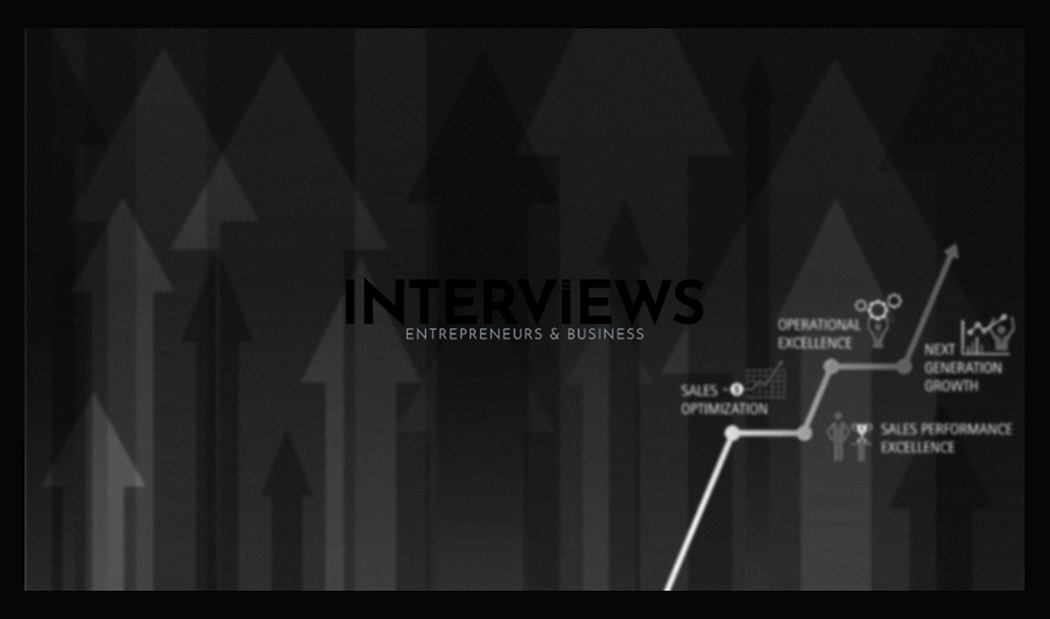Cracking the Code to Selling Software: Your No-Nonsense Guide
You built software to change lives or ease work. Great! But a good product isn’t enough. You must sell it too. Let’s discuss how to turn your idea into a money-maker. We seek practical methods, not fluff.
Fundamentals of Software Sales: Laying the Groundwork
Before you market, get the basics right. Selling software is a process. First, know your audience. Sounds simple? It’s not. Identify your target audience. Who needs your software? Pinpoint this crucial step.
- Defining Your Target Audience: Ask: Who benefits most? What industry? Company size? Roles? Specificity enhances your sales and marketing. Understand your audience to build a successful product.
- Creating a Strong Online Presence: If you’re invisible online, you may fail. Build a user-friendly, informative website. Consider it your digital storefront. Make it easy for potential customers to find and understand your offerings.
- Offering Free Trials or Demos: “Try before you buy” applies here. Provide free trials or demos for potential customers. They experience the value firsthand, lessening purchasing risk. Tailored demos meet specific needs and showcase how your software solves problems.
- Implementing Targeted Marketing Strategies: Avoid random marketing. Choose targeted approaches.
- SEO (Search Engine Optimization): Optimize your website for search engines. When people search for your solution, appear at the top. This boosts visibility and drives organic traffic to your offerings.
Market Research and Target Audience: Know Your Battlefield
Market research is key before pricing or feature decisions. Without it, you’re lost.
- Identify Your Target Audience (Again, it’s that important): Who are you targeting? Understand their needs and pain points. What issues face them? How does your software help?
- Understand Your Competition: You may not be alone in the market. Research other solutions. How do you stand out? What sets you apart? This knowledge informs your market position.
- Conduct Market Research: Check demand for your software. Is there a true need? Identify potential customers through surveys and analysis. Don’t assume they want it; gather proof.
Online Presence and Store: Setting Up Shop in the Digital World
Your website is more than a brochure; it’s your store. Make browsing and buying easy for customers.
- Creating an Online Store: Showcase your software for easy purchases. Feature highlights and benefits prominently. Ensure a smooth buying experience and focus on user experience.
- Choosing a Payment Gateway: Secure and easy payment options are essential. Select a reliable gateway that offers various methods and ensures secure transactions.
- Developing a Strong Website: Your website serves as your digital headquarters.
- User-Friendly Design: Ensure easy navigation, clear calls-to-action, and responsive design across devices.
- Informative Content: Clearly explain your software’s purpose, target audience, and problem-solving abilities through blogs, videos, and case studies.
- Visually Appealing Elements: First impressions matter. A professional website builds trust with visitors.
Marketing and Sales Strategies: Getting the Word Out (Effectively)
Now comes the enjoyable part: selling your software. It’s not just enough to create; selling is vital.
- Offering Free Trials or Demos: We mentioned this before, but it bears repeating. Free trials and demos serve as effective sales tools. Let users explore.
- Creating Engaging Content: Content holds power. Create blog posts, videos, infographics, and other materials showcasing software value. Tackle customer pain points with storytelling.
- Utilizing Social Media Marketing: Social media offers promotional opportunities beyond memes. Engage with your audience on platforms they frequent.
- Attending Industry Events: Networking matters. Attend conferences to meet potential customers and partners. Such events are lead-rich opportunities.
- Implementing SEO (Search Engine Optimization): Enhance website and content rankings in search results to attract organic traffic and qualified leads.
- Considering Video Marketing: Videos effectively demonstrate and explain software. Highlight key features and benefits through engaging visuals.
- Sending Effective Cold Emails: Cold emailing can still yield results if done right. Personalize outreach to address specific needs, avoiding generic messages.
- Providing Strategic Demos: Tailor each demo to meet prospect requirements, demonstrating how your software can simplify their tasks or enhance their profits.
- Nurturing Existing Customers: Maintain relationships with current customers, offering excellent support. Happy customers foster repeat business and referrals.
For more insights, Forbes shares four clever tips for selling your next tech product.
Strategies for SaaS (Software as a Service) Products
If you’re in SaaS, some strategies matter more. Focus on subscriptions, recurring revenue, and retaining customers. The “Rule of 40” is vital in SaaS. It states that growth rates and profit margins should equal or exceed 40%. This measures growth versus profitability balance.
Legal Aspects: Staying on the Right Side of the Law
Let’s discuss legalities – not thrilling but crucial. Can you legally sell software? Yes. But rules exist.
- Software Copyright Laws: Copyright protects software. It covers all expressions in your code. Selling as shareware does not alter copyright rules.
- Software Licensing Agreements: Software is usually licensed, not sold outright. That’s why agreements define usage terms for individuals or businesses before installation.
- Copyright Infringement and Software Piracy: Software piracy involves unauthorized copying or distribution of software. It’s illegal. All types of piracy include multiple copies or installing single-license software on many computers.
- Protecting Intellectual Property: Protect your software from piracy. Implement anti-piracy measures and be aware of licensing agreements while understanding potential penalties for infringement.
- Open Source Software: Understand open source licenses if using or distributing components. Popular ones include the Apache License and MIT License.
Software Valuation: What’s Your Digital Baby Worth?
Want to find the value of your software? Consider several factors such as demand, features, competition, and financial performance to determine its worth.
Do you know how to price your software? Its value relates to future earnings, cash flows, and cost savings. Think about the revenue and cost savings for users. Ultimately, how much will it make someone or save them in the future?
Software Piracy: The Dark Side of Digital Distribution
Software piracy presents a severe problem. It refers to unauthorized duplication, distribution, or usage of software. Making unauthorized copies, installing software beyond licenses, and sharing pirated software online all count as piracy. Using unlicensed software is illegal. Software piracy has consequences, including legal actions and damage to reputations. If you notice software piracy, you can report it.
Software Reselling: Partnering for Profit
Software reselling can yield profits. How to Become a Software Reseller: A Guide [for 2025] is useful. Resellers buy licenses from vendors and sell them to users while adding value through support and services. They purchase software in bulk at discounts and sell it for more. Profit margins typically range from 15% to 50%, making it quite lucrative.
- Software Procurement: Resellers obtain licenses by partnering directly with vendors or through distributors.
- Value Addition: Resellers often offer customer support, implementation services, or bundled solutions.
- Is Software Reselling Profitable?: Yes, proper strategies enable high profitability in software reselling.
- How Do Software Resellers Make Money?: They acquire software at wholesale rates and sell it to users at a retail price, while services boost earnings.
Typically, reselling products is legal. Always confirm you have authorization to resell licenses.
Salary and Career Paths in Software Sales: Show Me the Money
Interested in a software sales career? It can be rewarding financially and professionally. This path often needs a background in computer science, business administration, or related areas. A technical degree helps, but skills in management and economics hold value too.
- Average Software Sales Representative Salary: Salaries differ widely in this high-paying field. “OTE salary” refers to on-target earnings, which includes base salary and potential commission.
- High-Paying Software Sales Jobs: Skilled software sales professionals can earn competitive incomes and commissions. Some achieve 7 figures in tech sales and even reach $300k annually.
- Software Sales Manager Salary: Transitioning into management often boosts earning potential.
- Tips for Successful Software Sales: Strong communication, technical grasp, and persistence are essential skills.
- Is Tech Sales a Stressful Job?: Tech sales can be demanding and target-driven but offers great earnings and advancement opportunities that may offset the stress.
Beginners can find entry-level jobs in software sales, and certifications can enhance prospects.
Starting a Software Company: From Idea to Reality
Do you wish to build a software empire? Starting a software company takes time.
- Steps to Develop Software:
- Validate Your Idea First: Is there a demand for your software? Market research is vital.
- Create a Software Requirements Specification: Define your software’s functionalities clearly.
- Choose the Right Tech Stack: Identify the technologies for software development.
- Design Your Product: Plan the user interface and user experience carefully.
- Develop Your Product: Write code to create your software. Agile methodologies work well here.
- Rigorously Test Your Product: Performing QA during development catches bugs and ensures quality.
- Launch and Iterate on Your Product: Release your software and improve it based on user feedback.
- Cost to Launch: Starting a software company typically costs between $30,000 to $150,000, varying by team size and setup.
- Time to Market: Bringing products to market often needs over a year. Avoid rushing, even if timing seems critical.
The Rule of 40: SaaS Success Metric
The “Rule of 40” serves as a crucial metric for assessing SaaS companies. The revenue growth rate combined with profit margin should exceed 40%. This balance between growth and profitability matters for long-term success.
Legal and Ethical Considerations: Doing Business the Right Way
Beyond legality, ethical considerations matter too. Unethical software use involves unauthorized copying, use, or modification. It’s unethical—often illegal—to breach licenses or copyright agreements. Remember, copying software constitutes copyright infringement.
Software Patents and Trademarks: Protecting Your Innovations
Interested in protecting your software ideas and brand? Let’s discuss patents and trademarks.
- Software Patents: You can patent software by applying for a patent. The application needs details about your invention. Patenting costs typically range from $5,000 to $20,000 or more.
- Software Trademarks: You can trademark names, logos, or slogans but not the software’s function or type itself. Trademarking helps protect brand identity. Trademark application costs are around $250 to $350 per class of goods or services.
- Copyright for Software: Copyright safeguards the code while patents protect inventive concepts, and trademarks shield your brand. You can copyright your software; ideas aren’t copyrightable unless expressed in tangible forms.
Selling Software on Different Platforms: Where to Sell
Where can you sell your software? Multiple platforms exist for this purpose. Consider selling on Steam, Google Cloud Marketplace, or directly to companies like Google. Think about where potential buyers are most likely to find your software.
Roketto offers guidance on effectively marketing software products.
Frequently Asked Questions (Because You’re Probably Asking Them)
- What is the most open license software? Common open licenses include the MIT License and Apache License 2.0.
- Can I copyright a software idea? No, you cannot copyright ideas in abstract form; only tangible expressions like code are protected.
- How do I give permission to software? This involves app permissions on devices. You can control permissions through device settings (e.g., calendar, contacts).
- Is it illegal to use unlicensed software? Yes, using unlicensed software constitutes piracy and is illegal.
- How do I become a software product owner? Training, certifications, networking, and experience are key steps here.
- What is a typical commission for software sales? Standard commissions hover around 10% for account executives but can differ.
- How should I price my software? Evaluate value-based pricing, competitor rates, and enterprise costs.
- What is unethical use of software? Unauthorized actions such as copying, modification, or distribution fall under unethical usage.
- Is software reselling profitable? Yes, with profit margins ranging from 15% to 50%.
- How do software resellers make money? By bulk purchases at lower prices plus offering additional services.
- Can reselling be illegal? Generally not, but ensure proper authorization for license reselling.
- What does OTE salary mean? OTE stands for On-Target Earnings; it includes base pay and commission potential.
- How can I sell my product on Google for free? Google Merchant Center allows free product listings.
- Does Google pay for ideas? No payment occurs for submitted ideas at Google.
- What is Google’s 20% rule? Employees may use 20% of work time on passion projects.
- Can I sell Canva designs on Etsy? Yes, if they are original designs using Canva content; avoid reselling templates directly.
- How do I license a product to sell? Start by researching markets and understanding licensing agreements.
Selling software presents challenges but offers great rewards. Understanding fundamentals, performing research, implementing strategies, and adhering to the law will boost chances for success. Now go ahead and sell that software!





